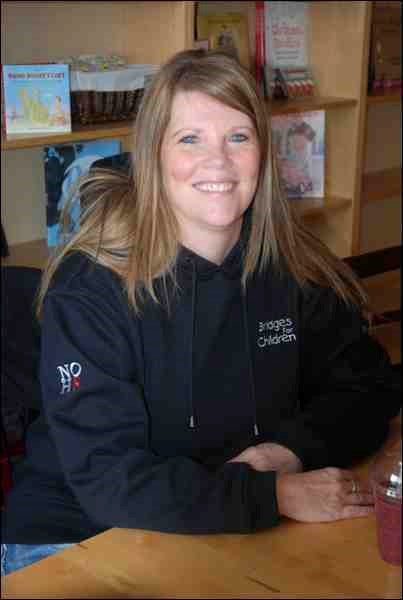Crime in North Battleford has been the subject of controversy in recent months, with local authorities resorting to requests for the provincial and federal governments to get involved. But behind the scenes, quietly, there are people working to address crime at the most grassroots level of all - the family.
Bridges For Children is a program that works with the families of children too young to be charged with a crime. From 1908 to 1984 that age was seven, as established in the Juvenile Delinquents Act. In 1984, the Young Offenders Act saw that age raised to 12, and it remains at 12 under the current Youth Criminal Justice Act of 2003.
The Juvenile Delinquents Act and today's Youth Criminal Justice Act share a philosophy of rehabilitation and intervention to prevent future crime. The controversial Young Offender Act represented a time when lawmakers leaned more toward punishment than treatment as a deterrent to future crime. But all three recommended parents be involved in whatever process their children were going through as a supportive measure.
Bridges for Children, a local initiative, operates under the premise that the most important building block of the community is the family. It uses a family-centred process called "wraparound" to help families facing challenges when a child gets in trouble.
Operating out of Living Faith Chapel Apostolic Church of North Battleford as part of the church's Mission of Hope programming, Bridges for Children is overseen by an advisory committee of community agencies. This committee, which includes the Ministry of Social Services, the RCMP, Living Sky and Light of Christ School Divisions, the North Battleford Fire Department, Battlefords Tribal Council Family Service, Kanaweyimik Family Services, Concern for Youth, Child and Youth Services, Catholic Family Services and Living Faith Chapel, gives direction to the program and receives and assesses all referrals to the program.
Facilitator Judy Huckabay says she and fellow facilitator Winnie Schultz may work with up to seven families at a time.
Each family is unique, she says. So are their needs. What constitutes a success may differ from family to family, but every success is important, says Huckabay.
While Huckabay has been with the program only a short while, having relocated from Dryden, Ont. when her husband Al became senior pastor at Living Faith Chapel in 2011, she knows of past facilitators being contacted by families who have found success and moved on with a new life. The program dates back to 2003.
The process is based on teamwork, with the family at the centre. A facilitator partners with the family and a team is formed that may include neighbours, family, teachers or agency workers who help the family develop a care plan and put it into action.
The process continues until the family believes it has reached its goal, says Huckabay.
Funding for the program comes from Social Services, says Huckabay, which covers the essentials. But donations also come in from the community that help with anything extra, such as sports activities or summer camps, she says. These are all activities that help build children's self-confidence.
Huckabay says they hold an annual bottle drive and a garage sale to raise funds and they get donations through the church. This past Christmas season, however, the management and staff of Valley Ford stepped up with a $1,200 donation, which was a welcome surprise, says Huckabay. It was a significant donation and very much appreciated, she says.
Overall, says Huckabay, she finds the Battlefords to be a very friendly, giving community, but, being a prairie girl, she expected that to be true when moving here after 14 years in Ontario. Al Huckabay is originally from Moose Jaw and Judy is from Veteran, Alta.
There are more community-based organizations here, she says, and extensive outreach.


.png;w=120;h=80;mode=crop)

